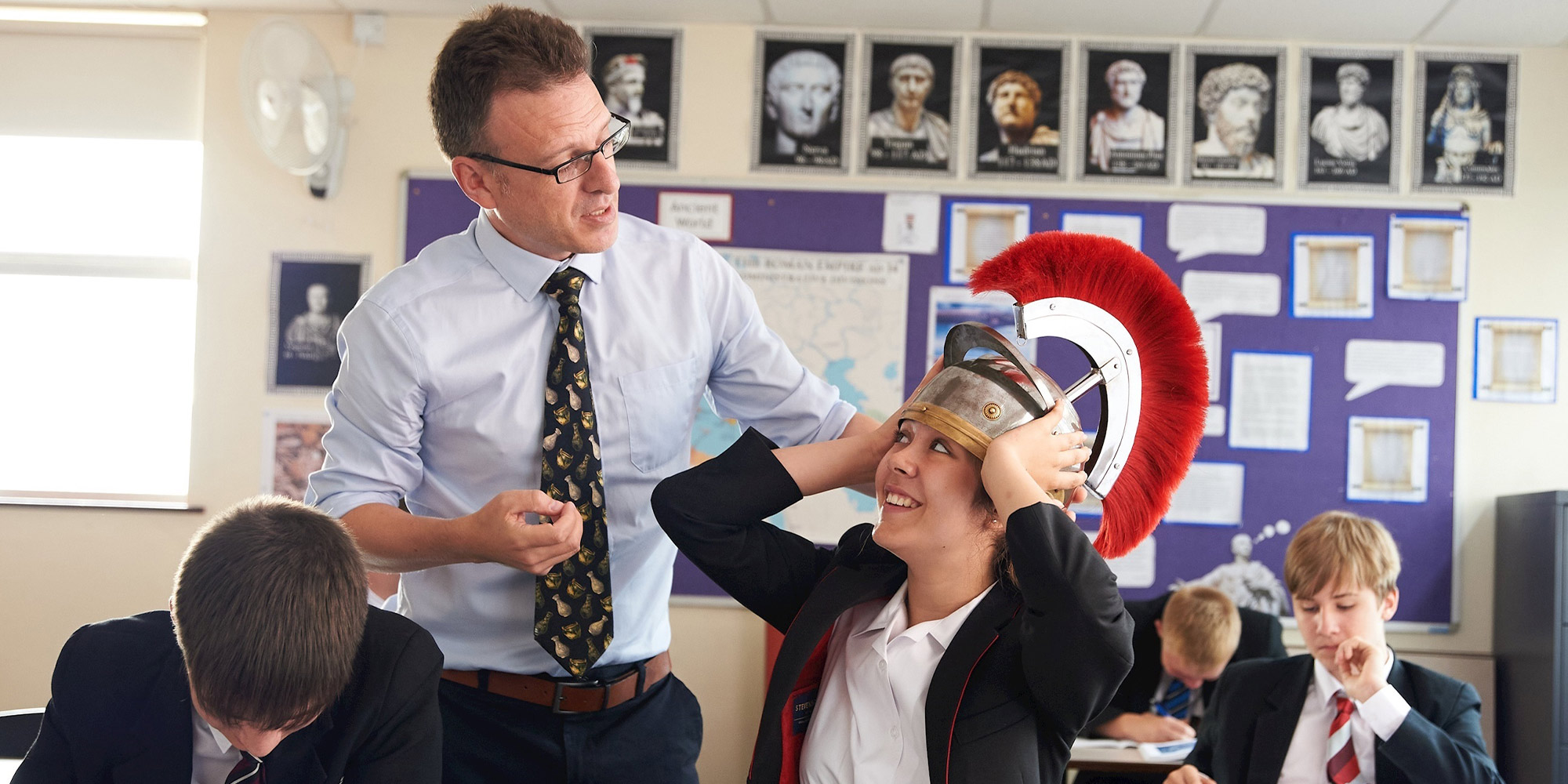History
The History Department at St Columba’s College is committed to academic excellence and fostering a lifelong passion for the subject.
Historical learning does not simply reside in the classroom and the department runs a host of trips, including Warwick Castle in Form 1, and the First World War Battlefields in Form 3. Older students have the opportunity to explore the history of countries further afield. In recent years, students have visited Berlin, Auschwitz, Washington and New York.
The struggle of man against power is the struggle of memory against forgetting. Milan Kundera
The department has invited a range of visiting speakers to give talks to students, including academic Historians and Holocaust survivors. We also run a popular Historical Film Club. In addition, we are delighted to offer extra support sessions for students who need further guidance or who want to delve more deeply into the subject we love.
History: Senior
Course Description
During the first three years of the Senior School, we aim to provide a course that spans a thousand years, giving every student the opportunity to experience aspects of History from Medieval to Modern Times. By the end of Form 3, students will have acquired an impressive understanding of key events in British and World History, from the Battle of Hastings to the Second World War. Where possible, we try to offer a global perspective to our teaching and encourage students to see the significance of the events they are studying to the world they live in today and how the past impacts on the present. In Form 1 we look at the Medieval and Tudor world starting with the Norman Conquest and finishing with the Reformation and its impact on St Albans. In Form 2 the overarching theme is Revolutions, looking at the English Civil War, French Revolution and the Industrial Revolution as well as African Civilisations, Trans-Atlantic Slave Trade, and the role of the British Empire. In Form 3 we move into the Twentieth Century, focusing on the First and Second World wars, The Civil Rights Movement in the USA in the 1950s and 1960s and Post War immigration into the UK. Special attention is given to the rise of Anti-Semitism in Nazi Germany and the Holocaust. Throughout Key Stage Three students are encouraged to think critically and creatively and given the opportunity to explore their own interests in the past.
At IGCSE, the main emphasis is on the forces of change in the twentieth century. The College follows the Edexcel iGCSE, which consists of modules on The Cold War from 1943 to 1972, Germany from 1918 to 1945, The USA from 1918 to 1941 and The Changing Nature of Warfare and International Conflict from 1919-2011.
Curriculum Overview
The History curriculum in Forms 1 to 3 looks to foster and refine intellectual curiosity. We place emphasis on encouraging students how to write reasoned and well-constructed essays, as well as honing their critical thinking skills through dissecting and evaluating historical source material and refining their arguments through debate. We also place an onus on independent learning and ask students to conduct their own research into different historical periods and debates.
At IGCSE we look to develop these skills further as well as enabling students to improve their organisation and manage the extra volume of information they are taught throughout the course.
What are the unique selling points of studying this subject at St Columba’s College?
It is our firm belief that historical learning does not simply reside in the classroom and the department is proud of the host of trips and opportunities it offers students. In Form 1 we visit Warwick Castle and St Albans Cathedral. In the Third Form Three run a yearly First World War Battlefields Trip to Ypres and the Somme, as well as Holocaust Education Day. IGCSE students can explore the history of countries further afield. In recent years, students have visited Washington and New York and as well as Berlin. The department has also invited a range of visiting speakers from Academics to Drama groups to develop historical understanding and spark curiosity.
How are the students assessed?
In forms 1 to 3 students are assessed two to three times a term with each assessment being centered around work that that they have already been studying in class. The assessments are either essay writing tasks, source work or independent research projects and the is graded in line with both the departmental and College grading structure. Students are given feedback on their assessments and are encouraged to reflect upon and develop their work based on the feedback they have been given.
A similar approach is taken at IGCSE and students are assessed three to four times a year and assessments are based around the types of questions they will face In the Edecxcel IGCSE History papers.
Home Learning
Students receive one home learning task a week at KS3 and two home learning tasks at IGCSE.
They can often take the form of independent research tasks helping further develop what the students are studying in class. At IGCSE, students are often asked to complete short exam style questions and also prepare for forthcoming assessments.
How can parents/guardians support their child’s learning?
Encourage your children to be interested, curious and inspired by the past. Take them to sites of historical interest of both local and national significance, visit art galleries, museums and castles, encourage them to read historical fiction, watch historical documentaries and films and talk to elderly friends and relatives to discover how lives were lived. Most importantly, encourage them to be critical and ask questions about the world they live in today and how it was formed.
Useful Links
At Forms 1-3
https://www.educationquizzes.com/ks3/history/
https://www.bbc.co.uk/bitesize/subjects/zk26n39
https://www.bbc.co.uk/iplayer/episodes/b00sp0l8/horrible-histories
https://www.bbc.co.uk/sounds/brand/p07mdbhg – You’re Dead To Me podcast
https://spartacus-educational.com/
At GCSE
https://www.gcsepod.com/
https://www.bbc.co.uk/bitesize/subjects/zj26n39
https://www.bbc.co.uk/sounds/brand/p0d0mj5v The Rest is History podcast


